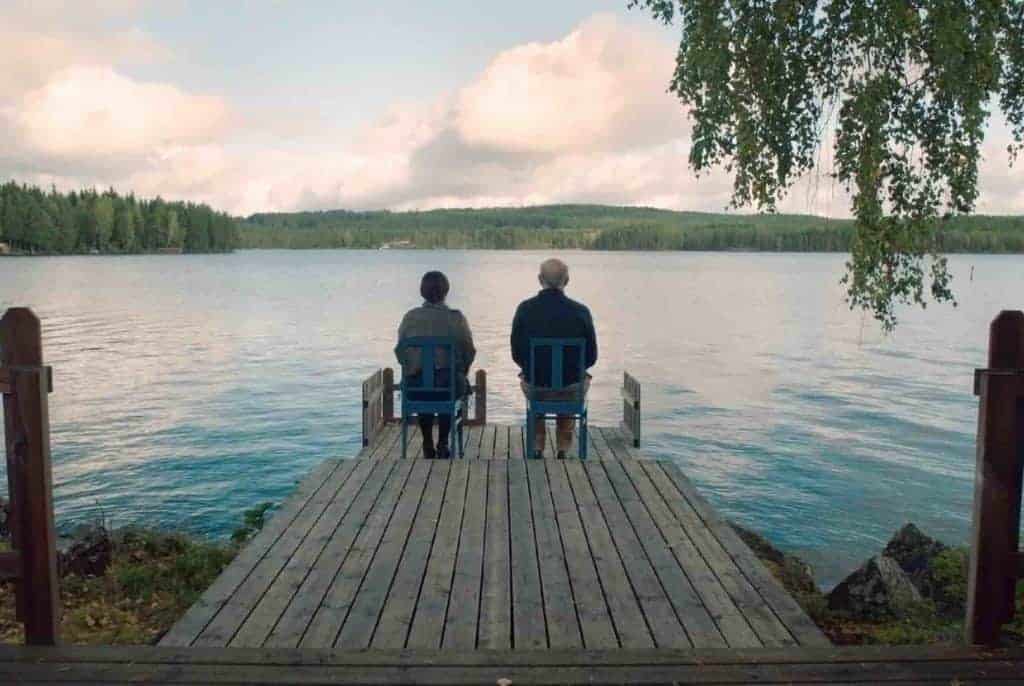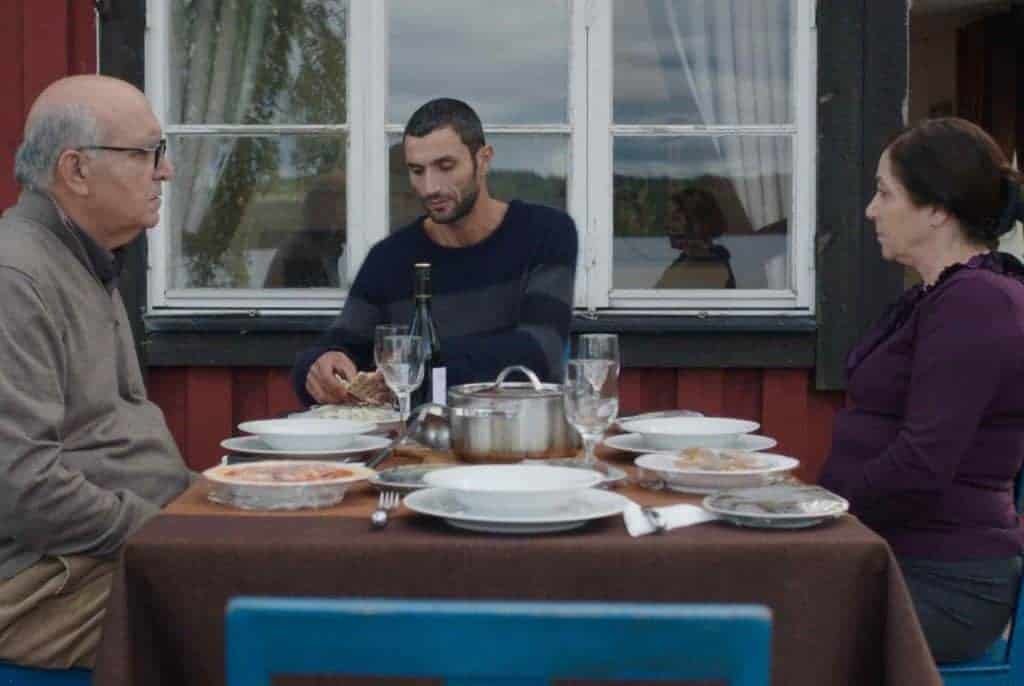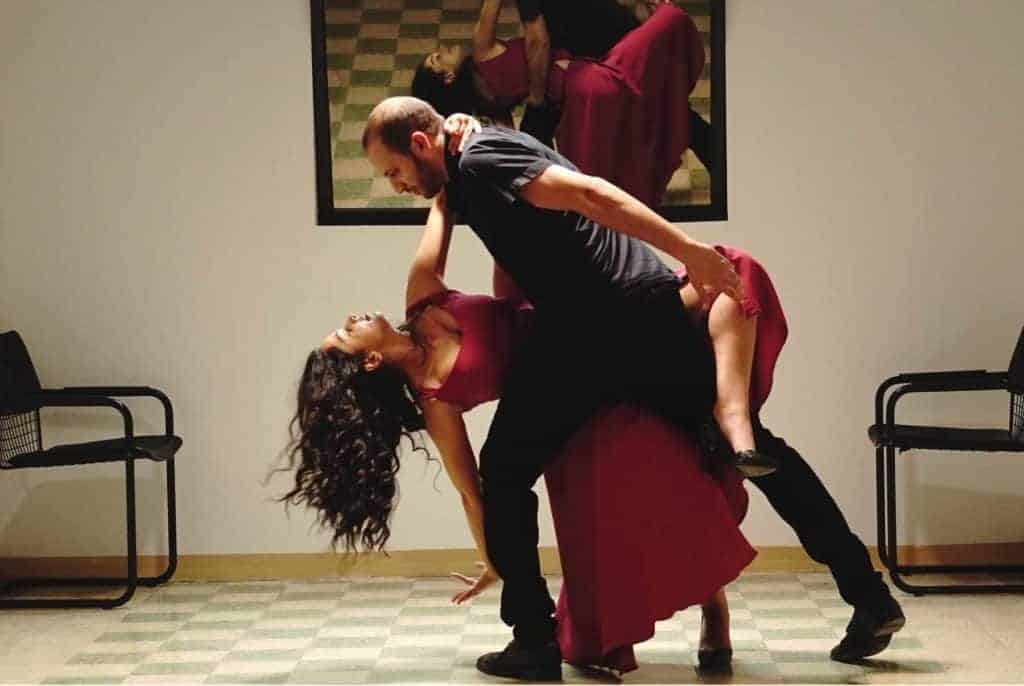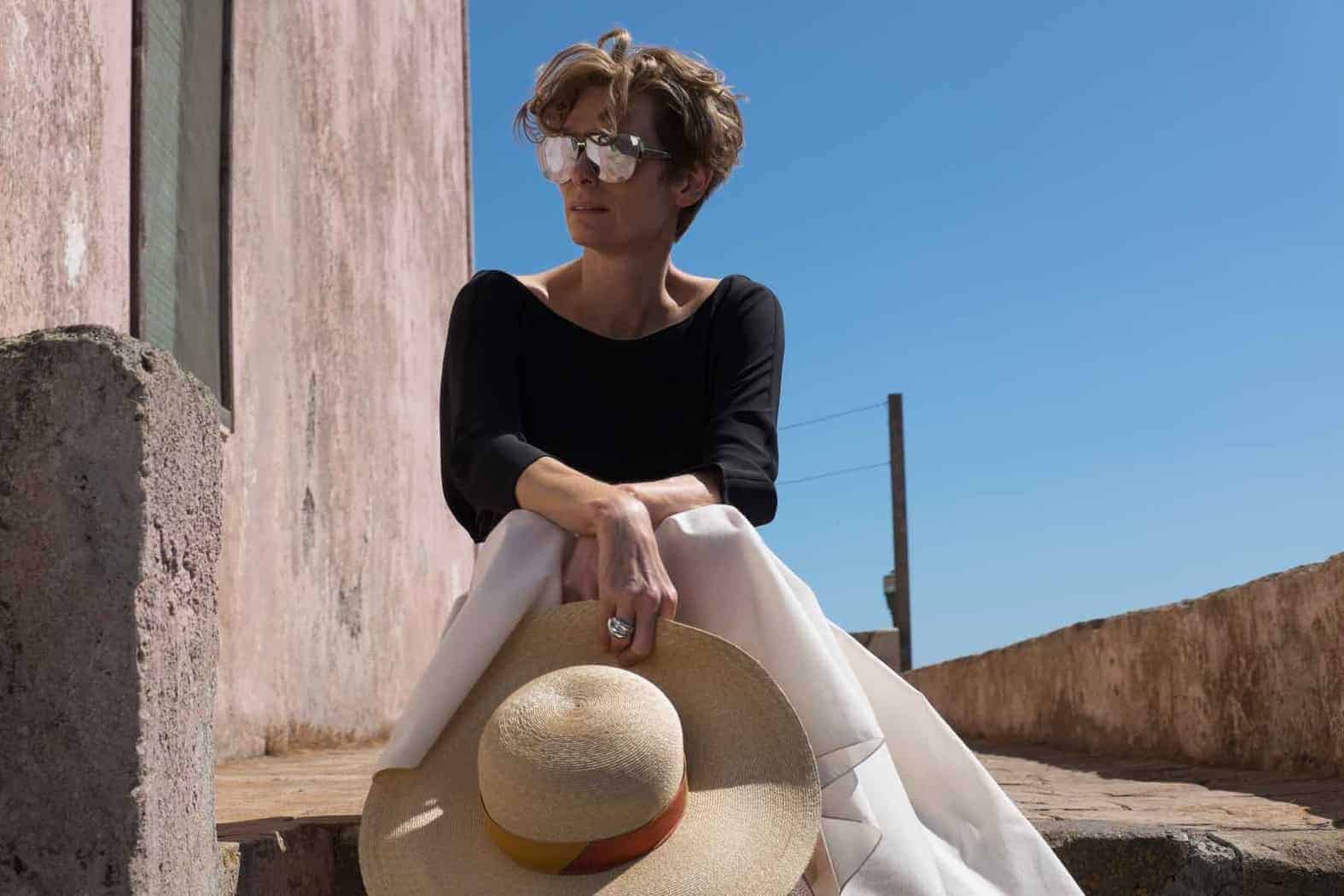Personal Affairs offers a gendered and decidedly feminist consideration of the way people can sometimes forget or refuse to treat their loved ones with the respect they deserve.

Maha Haj’s Personal Affairs (Omor Shakhsiya) opens by showing a woman and her husband in the midst of a total communication breakdown. Nabila (Sana Shawahdeh) is preparing dinner for her husband Saleh (Mahmoud Shawahdeh). He does not thank her, or even acknowledge her existence except by rudely asking her to bring him things. Despite how enraging this situation is, the film maintains a touch of humour and lightness: Saleh is unresponsive because his eyes are glued to his laptop. There is something inarguably funny in seeing a man in his sixties obsessed with a piece of technology, especially when all he does with it is read random bits of information about pineapples and birds.
This crucial scene explains why, from then on, Nabila becomes completely unresponsive to anything that might be going on around her. Saleh gets increasingly frustrated and annoyed at his wife, and neither he nor his sons Tarek (Doraid Liddawi) and Hisham ever understand this silence. Only the film and the viewers know that Nabila is simply giving them the same treatment she has been receiving. Their surprise and helplessness in this situation underlines how self-centered they are, and how rarely they are confronted with women demanding respect.

This is the second film at Cannes this year, along with the Romanian Sieranevada, to tackle the way we sometimes take our loved ones for granted. While Sieranevada looked at this from a peculiarly Eastern Orthodox tradition, the Palestinian Personal Affairs, presented in the Un Certain Regard section, takes a more universal approach. By focussing on each character’s love life, Personal Affairs offers a gendered and decidedly feminist consideration of the way people can sometimes forget or refuse to treat their loved ones with the respect they deserve.
The camera maintains a respectful, quiet distance and stillness throughout, which places the viewer far enough from the conflict to maintain our sympathy for both parties. It also provides the viewer with a sufficiently detached point-of-view to appreciate the silliness of the couples’ rows and grudges. This omniscient and distant camera gives access to the things that are happening outside of the self-absorbed characters’ field of vision: each side glance, raised eyebrow, or sigh of desperation made behind a lover’s back is visible to us.

Saleh’s son Tarek is disrespectful to his lover in a more insidious way than his father is. Although he does talk to his girlfriend Maissa (Maissa Abed El Hadi), he does not seem to care about her feelings — or even realise that he can be hurtful. His sister Samar violently criticises him for being so negligent, but Samar’s harsh temperament seems to make her husband Georges (Amer Hlehel) childishly escape into a fantasy world. He becomes obsessed with the idea of seeing the sea for the first time.
It is only when the couples get isolated by circumstance, free of all outside distraction, that they are ultimately forced to talk to and genuinely acknowledge each other’s suffering and frustration. Tarek and Maissa spend hours together in a cell after being mistaken for spies because of a loud public argument at the border, while Saleh and Nabila are gathered by Hisham in an isolated lodge in the Swedish countryside. Yet even in these more dramatic moments of truth, the film keeps its sense of humour and levity. Catharsis does not occur through tearful melodramatic conversations but because each partner eventually realises that they truly love spending time with their paramours.

